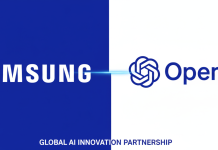The Browser Company has launched ‘Dia’, a new AI-powered web browser that aims to transform how users interact with the internet. Introduced on June 11 in a limited, invite-only beta, Dia integrates artificial intelligence directly into the browsing experience, offering a smarter and more intuitive way to surf the web.
Josh Miller, CEO of The Browser Company, announced the launch on X (formerly Twitter), stating, “Dia gets more personalized with every tab you open. This is 100x more context than ChatGPT, automatically.” According to Miller, Dia represents a leap forward in the evolution of web browsing by embedding AI directly into the core browser experience.
What is Dia?
Dia is built on Chromium, the open-source browser engine developed by Google, which means it maintains a familiar interface. At first glance, users will recognize the standard URL bar, but this bar also doubles as an input field for the in-built AI chatbot.
Unlike traditional browsers, Dia’s AI assistant can perform web searches, summarize uploaded files, and even analyze content from open tabs. Users can interact with the AI in both chat and search modes, which the browser automatically switches between as needed. This dual-mode functionality makes browsing more seamless and context-aware.
Additionally, the AI has what the company calls “screen awareness.” This means users can ask questions about currently open tabs, and the AI can generate relevant documents based on those contents—an innovative step toward intelligent content generation within the browser itself.
Personalization and Privacy at the Core
What makes Dia stand out is its personalized AI memory system. Every time a user opens a new tab, Dia automatically takes encrypted notes, which are stored locally on the user’s device. Sensitive data, such as banking pages, are excluded from this memory process. This ensures that personalization does not come at the cost of privacy.
There’s also an optional feature called History, where users can allow the browser access to their last seven days of browsing history. This opt-in function helps Dia provide more personalized answers to search queries by understanding browsing habits more deeply.
Skills: AI Shortcuts for Efficiency
Dia introduces a feature called Skills, which are essentially short strings of AI-generated code. These act as shortcuts or command presets, allowing users to automate tasks or adjust settings quickly. This feature could be particularly valuable for power users and developers seeking a more efficient workflow.
A Strategic Shift from Arc to AI-Centric Browsing
This isn’t The Browser Company’s first foray into reimagining internet navigation. In 2023, it launched Arc, a visually unique browser that gained niche popularity. However, its non-traditional interface hindered mass adoption. Learning from that experience, the company has now focused on delivering an AI-first, user-friendly browser experience through Dia.
The AI browser space is heating up. Google is rolling out Gemini to Chrome users in the U.S., offering features like AI Mode and AI Overviews. Meanwhile, Opera Neon is equipping its browser with AI agents capable of building mini-applications and handling small tasks autonomously.
Conclusion
With Dia, The Browser Company aims to redefine how people interact with the internet by putting AI at the center of the experience. By integrating intelligent chat, search, personalization, and privacy features into a Chromium-based design, Dia positions itself as a future-ready AI web browser—one that understands not just what you’re searching for, but why.
As the web continues to evolve, browsers like Dia may well be the gateway to the next generation of intelligent, intuitive, and secure browsing.
I hope you find the above content helpful. For more such informative content, please visit Techadvisor Pro.













